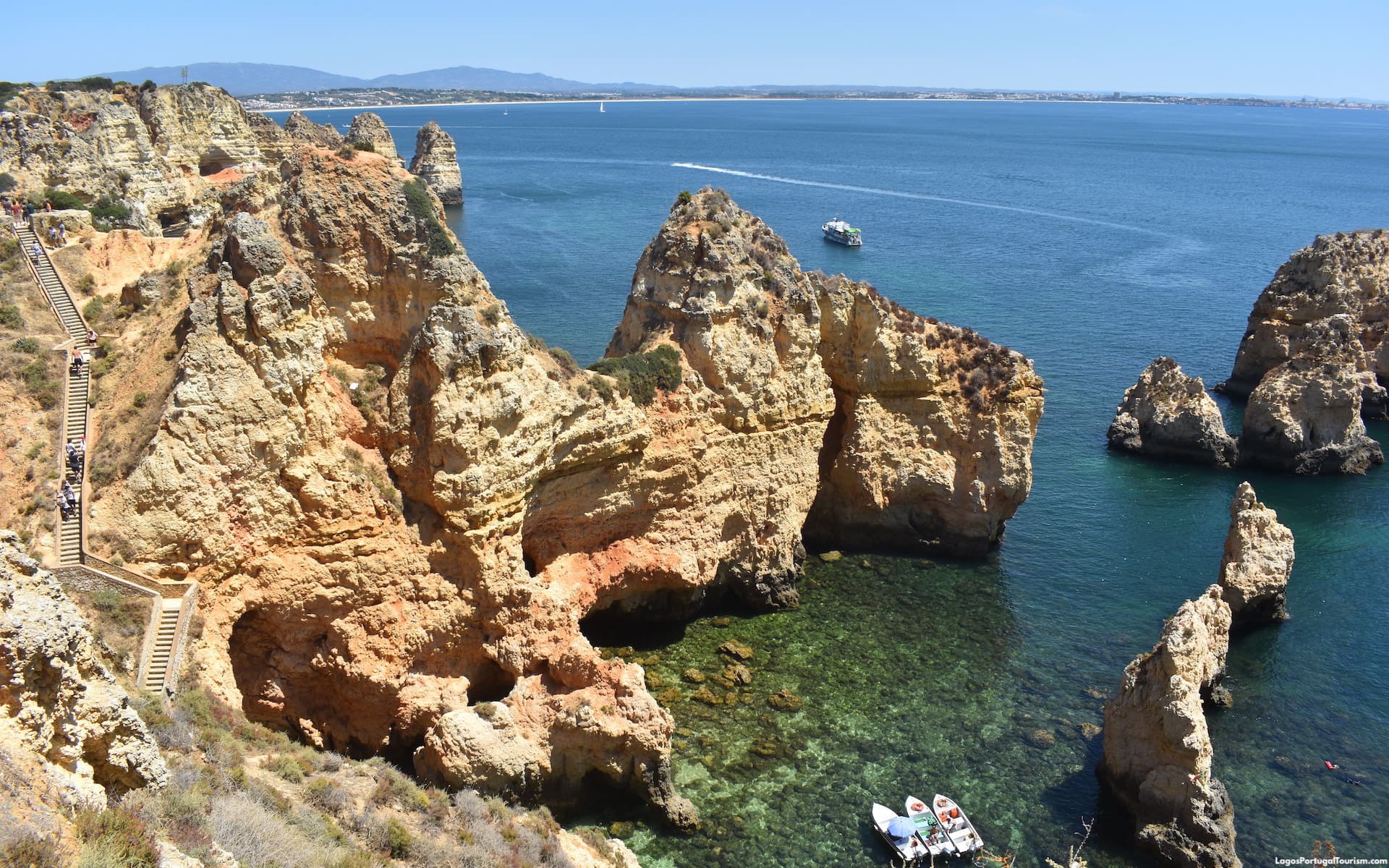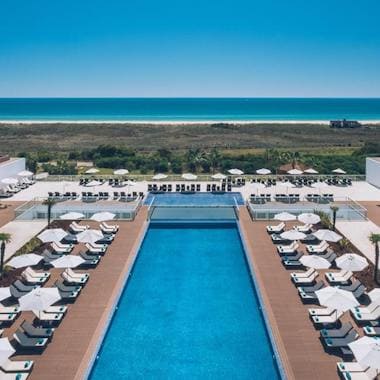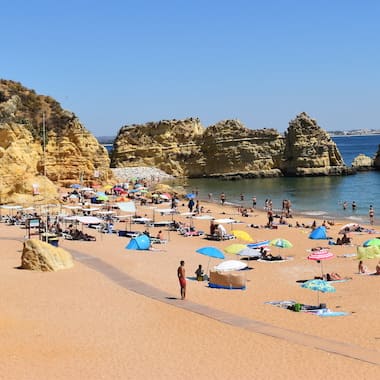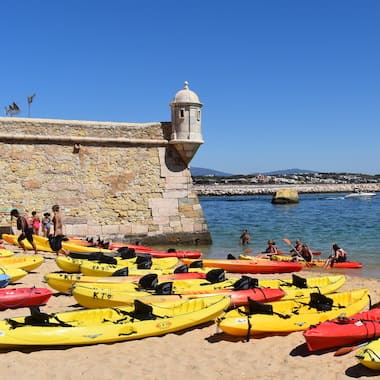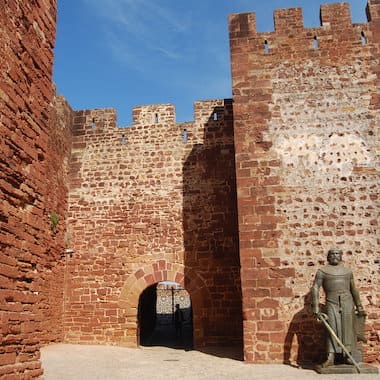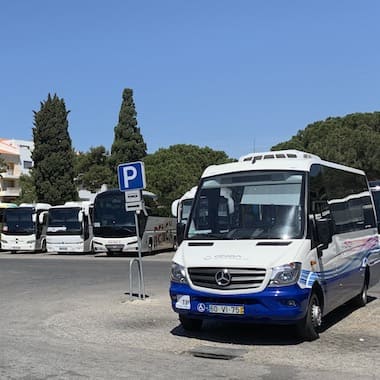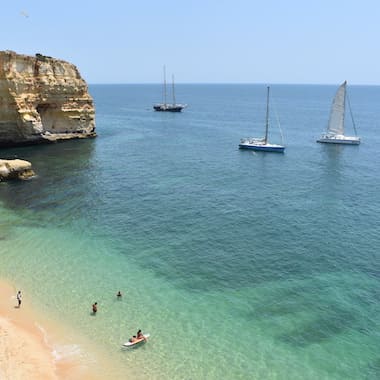When to Visit Lagos
Blessed with a climate of warm summers and mild springs and autumns, Lagos is a destination for almost any time of the year. Temperatures in the dry summer days can reach 35 to 40 degrees celsius (95 to 105 degrees Fahrenheit), but nights are always much cooler and pleasant. Spring and autumn months are mostly sunny, with the occasional rainy day. Keep in mind that Portugal’s Algarve region has over 3000 hours of sun per year (compare that to London’s 1450 hours and New York’s 2150 hours), so consider yourself unlucky if you happen to be in town on a rainy or stormy day! You can have a pleasant beach day as early as May and as late as mid-October. In winter, it will never be warm enough for sunbathing.
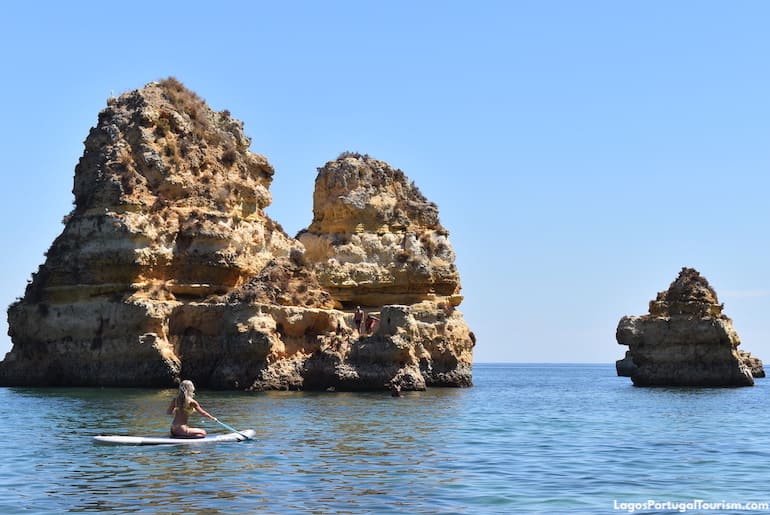
How Many Days in Lagos?
Lagos is a perfect destination for an extended summer holiday. If you’re on a tour of Portugal or exploring the region of Algarve, you should dedicate two days to Lagos, in order to experience its cultural sights, dramatic coastline, and the main beaches. However, those looking for a destination to relax in the sun and by the sea often stay for a week or more. You can go to a different beach on each day of the week, and also take day trips to towns nearby, on the coast and inland (such as the Sagres promontory or the castle in Silves). In fact, as a major transportation hub in the region, Lagos is an excellent base to explore Western Algarve.
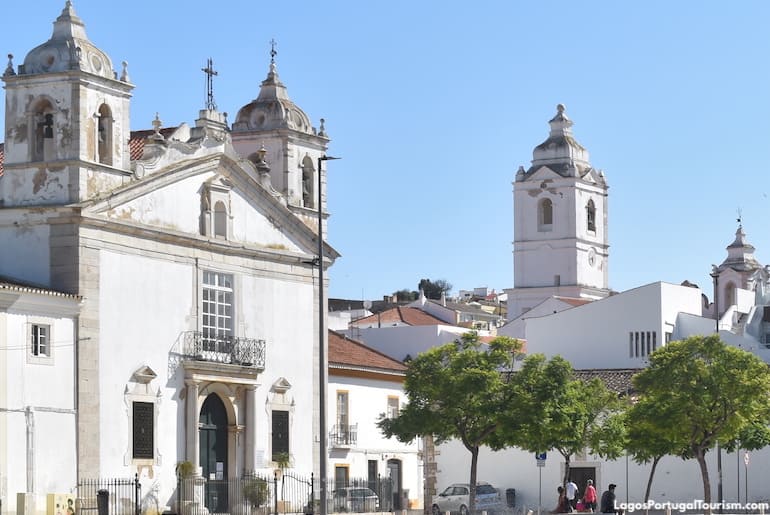
What You Need to Know Before You Go To Lagos
It’s One of Portugal’s Most Historic Cities
Originally the Celtic settlement of Lacóbriga, Lagos prospered during the Roman occupation, and was also a significant Moorish city before becoming part of the Portuguese kingdom in the 13th century. It played an important role during the Age of Discovery, with Prince Henry the Navigator (governor of the province of Algarve, and responsible for the early days of European exploration and maritime trade) sponsoring an expedition by local explorer Gil Eanes, who ended up being the first to make it past Cape Bojador in 1434. This opened the way for other explorers, such as Vasco da Gama, who later found a new maritime route to the East, creating the modern age of global trade.
It Had the First African Slave Market in Europe
At first, the trade of the new maritime routes consisted mostly of Asian spices, but as they went down the coast of Africa, the Portuguese navigators also traded slaves and Lagos established the first African slave market in Europe. From Portugal, these “servants” were sent across the Atlantic to the colony of Brazil, but were also bought by the British, Spanish, French, and Dutch empires. The market where these transactions took place still exists, and has been turned into a small museum, telling this story and serving as an “international center for living memory of human dignity.”
It Was Largely Destroyed by an Earthquake in the 18th Century
A major earthquake in 1755 destroyed much of southern Portugal, including Lagos, so this is mostly a late-18th-century city. Its churches and other buildings had to be rebuilt or restored, and reflect the baroque style of the time. The greatest monument is Igreja de Santo António (Church of St. Anthony), with its gold-covered interior from 1769.
It’s a Destination for Everyone
Couples, families with children, backpackers, gay, senior and active travelers will all find Lagos to be perfectly suited for them. There are beaches for every taste and lifestyle, as well as activities and historic sights for those who like to combine adventure or culture with days at the beach.
It Has a Lively Nightlife
The largely pedestrianized Old Town of Lagos is lined with outdoor restaurants and bars open until late. This isn’t a party town (for that, you’ll want to head to Albufeira instead), but it’s a place to enjoy the warmer summer nights and relax with a few drinks.
You Should Book Early
Lagos is not a big city, and although it has a considerable number of hotels, everything gets fully booked quite early for the high season. If you’re planning to visit between June and September, make sure you book accommodation well in advance. Check prices and availability here: Lagos Hotels, Apartments, Hostels
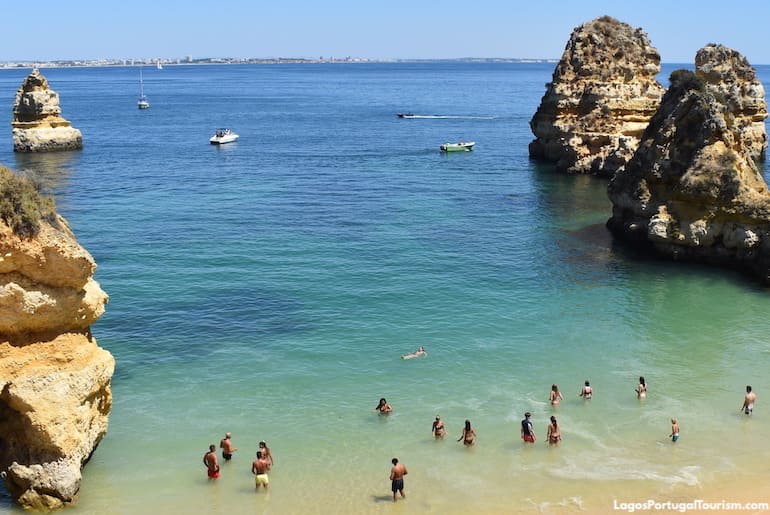
Official Lagos Tourism Office
Everything you need to know about Lagos and to plan your visit is on this website. It offers entirely independent and complete information from locals and travel experts, not sponsored by or associated with any local institution or organization. However, if you still have any questions when you’re in town, pass by the official tourism office, which is located in the heart of the city, in Praça Gil Eanes. It also provides information about the entire Algarve region, as does the tourism office at Faro Airport, if you’re arriving by plane.
